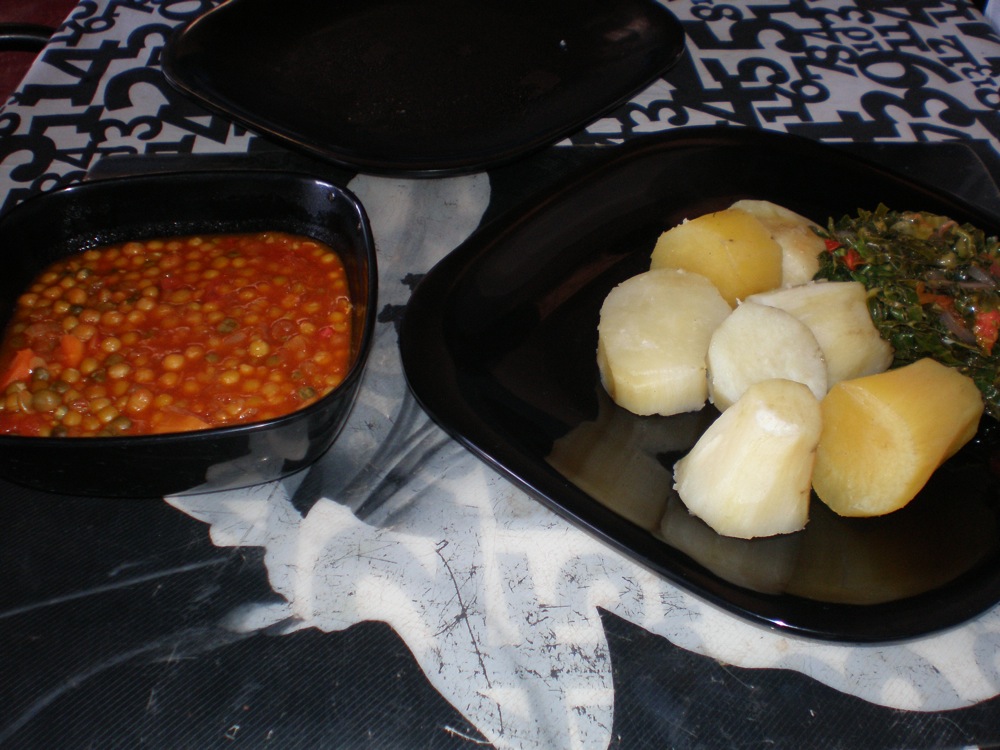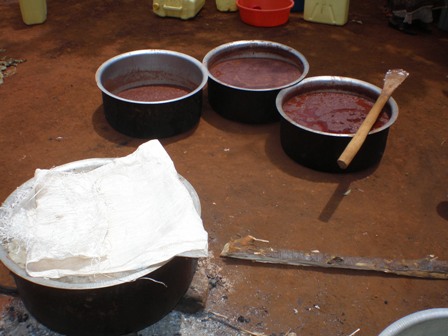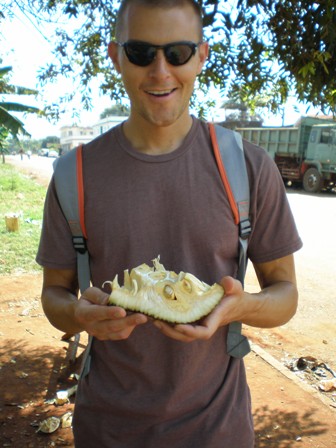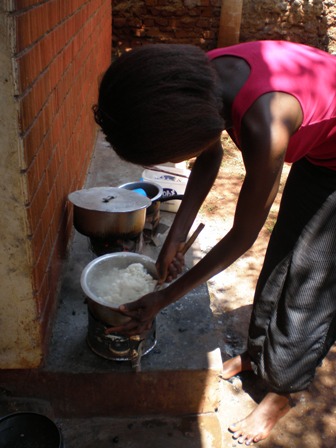During a conversation with a woman in a village outside of Jinja in Uganda, I asked her if many people died of cancer. She paused and looked at me with a confused expression.
She’d never heard of cancer. She explained that her friends and family were suffering from AIDS, malaria, tuberculosis and typhoid.
Now, with the average life expectancy at 45 years, it’s hard to know if Ugandan eating habits will lead to optimal health beyond 50 years. But we do know that Ugandans don’t suffer from many of the chronic, lifestyle related diseases we deal with in North America. And most of them aren’t fat.
So, here are a few things I observed about eating and lifestyle while in Uganda:
Ugandans keep it simple
There are about 10 different foods Ugandans eat, over and over. They don’t import countless other food products. Further, most shopping is done at outdoor markets with local growers.
Come to think of it, that’s pretty much how I eat in the U.S. I just have to ignore the 39,980 other food options on the market shelves along with food lobbyists, corrupt dietitians and food advertising.

Ugandans eat 2 or 3 times per day
This seemed fairly standard. They aren’t doing the small, frequent meal thing here. It’s 2 or 3 squares per day.
In between, they are working, caring for family, farming, walking, or shopping and prepping for the next meal.
Ugandans don’t over-read nutrition info
I didn’t see any bizarre diet magazines or meal plans when I was in Uganda and they don’t seem to be getting overwhelmed with conflicting dietary advice.
Come to think of it, they pretty much gather all of their nutrition and eating information from mom, dad, grandma or grandpa.
Ugandans don’t do fad diets
I don’t think fad diets exist in Uganda. Even if they did, it would be extremely difficult to purchase the fad foods that go along with the diet. I didn’t see any diet plans posted above the charcoal cooking station outside the huts.
Ugandans eat real foods that they enjoy
When it’s time to eat, Ugandans are excited.
They enjoy the food they prepare and are hungry when it’s meal time. They don’t frown and complain when another round of rice and beans are served. They are just excited to have food.

Ugandans cook their food
I don’t know if this is a taste thing or a sanitary thing (or both), but most of the food in Uganda is cooked. People aren’t noshing on big salads and raw veggie platters.
Ugandans focus on non-food things
I didn’t meet anyone in Uganda who was stressing about meal timing, macronutrient ratios, calorie tallies, or body image. When it was meal time, they ate. When it wasn’t, they were doing something else.
Ugandans buy food grown around them
They eat foods grown down the street or around the corner.
No apples from New Zealand.
No berries from California.
No cucumbers from Canada.

Ugandans eat with family and friends
Ugandans aren’t working the steering wheel with one hand and the Pancake/Sausage Stick with the other while driving to work in the morning. Each meal is a meal. It’s consumed around a table with family and friends.
Ugandans don’t eat much processed food
The outdoor markets don’t stock chips and crackers. If you want a processed food in Uganda, you process it yourself, at home.
Ugandans drink water and tea
No sport waters or venti coffees. It’s water from the well and maybe a cup of tea. That about does it for beverage selection.
Ugandans don’t eat fast food
I didn’t see one fast food restaurant in Uganda. The only version of “fast food” I saw was street vendors. The street vendors had two options. Fire roasted corn on the cob and something called a Rolex. A rolex is chapati (flatbread) filled with eggs, cabbage and tomatoes.
Ugandans move it
Ugandans walk to work.
Ugandans walk to school.
Ugandans walk to the market.
Ugandans farm.
Ugandans bike.
Ugandans walk to get water.
Ugandans dance.
Ugandans hand wash clothes.
Ugandans walk to their friend’s house.
You get the idea.

Ugandans don’t consume much dairy and meat
Dairy is rare. Meat is too. They are considered “special occasion foods.” Maybe an ounce or two each week, but not part of the daily meal rotation. Eggs are much more common than dairy or meat.
Ugandans have social support
I’m not talking about weight loss support groups. Rather, Ugandans just eat healthy, real foods. It’s what they do. Ugandans eat posho and beans for dinner, many nights of the week.
To give you an idea, eating a 100% plant-based diet there was completely normal. I didn’t get any strange comments from people asking how I could go without burgers or if I was weak from protein deficiency. Nutritious eating is the norm because that’s what other people do. That’s how they learned to eat from mom, dad, grandma and sister.

So, take these tips for what they’re worth. I’m far from a Ugandan nutrition expert, but observing cultural eating habits may provide us with ideas to help our own nutrition endeavors.
For more on my trip to Africa, see here:
https://www.precisionnutrition.com/members/showthread.php?t=23416
v




Share